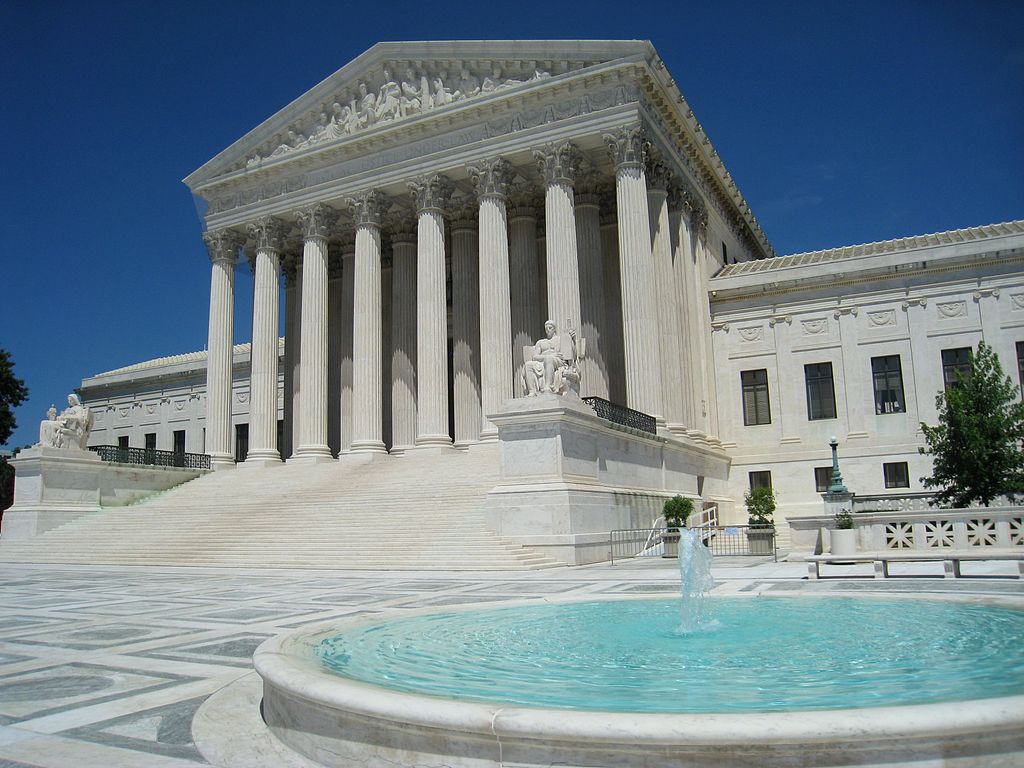Supreme Court Brushes Off Trump Election Challenge
Trump filed the suit against Wisconsin Elections Commission and many state, local officials.
In recent weeks, several lawsuits aimed at changing the results of the 2020 presidential election have withered against the standards for appeal to the U.S. Supreme Court.
The latest is one was brought directly by former President Donald Trump against the Wisconsin Elections Commission (WEC), the Wisconsin Secretary of State, Governor Tony Evers, and more than a dozen local officials including Mayor Tom Barrett, Claire Woodall-Vogg and Milwaukee County Clerk George Christenson.
The suit was filed in November, and was dismissed by U.S. Court of Appeals Judge Brett Ludwig of the Seventh Circuit the following month.
After that, Trump, represented by attorneys from the Indianapolis law firm Kroger, Gardis & Regis, LLP, appealed to the Supreme Court and filed a motion for expedited review, so as to have the case heard before President Joe Biden was sworn in. That, too, failed and the high court didn’t decide on whether to grant review until this week.
Like all the suits launched by Trump and Republicans in the wake of the 2020 election, it was intended to change the results in a battleground state in order to tip the balance of the electoral college in Trump’s favor.
The suit goes after absentee balloting guidance, arguing that the direction given by the WEC and local clerks went against state law.
This guidance, among other things, was related to election officials filling in missing address information of witnesses to absentee ballots, the definition of who can identify as “indefinitely confined” in order to vote absentee and the use of ballot drop boxes.
The suit rests on an interpretation of Article II of the U.S. Constitution relating to the appointment of electors. That is, that the guidance from the WEC and local clerks infringed upon the state Legislature’s constitutional authority to determine the manner for picking the state’s electors.
Like many other suits brought against absentee ballot procedures in the state, the court found this suit lacked standing in part because of how long it took Trump to challenge the rules. That’s because these same practices were in use during the 2016 election when Trump won, and he didn’t challenge them then.
Now the Supreme Court has closed the door on any further advance of the arguments made by Trump in this suit, denying his request to even hear the case.
More about the 2020 General Election
- Senator Agard Statement on Senator Knodl’s Continued Relitigation of the 2020 Presidential Election - Dane County Executive Melissa Agard - Aug 29th, 2023
- Report Calls For Criminally Charging State’s Fake Electors - Henry Redman - Dec 19th, 2022
- Vos Withdraws Subpoenas, Ends Gableman Probe - Henry Redman - Aug 30th, 2022
- Judge Blasts Gableman Probe, Deleted Records - Henry Redman - Aug 17th, 2022
- Vos Fires Gableman, Ends Election Probe - Shawn Johnson - Aug 14th, 2022
- Judge Orders Gableman To Pay $163,000 In Legal Fees - Rich Kremer - Aug 2nd, 2022
- Prosecute 2020 Fake Electors, Advocates Demand - Erik Gunn - Aug 1st, 2022
- Trump Calls For Nullification of Wisconsin’s 2020 Election - Henry Redman - Jul 12th, 2022
- Legal Fight Over Gableman Probe Keeps Growing - Shawn Johnson - Jun 30th, 2022
- Back In the News: Fake Elector Scheme Dogs Ron Johnson - Bruce Murphy - Jun 28th, 2022
Read more about 2020 General Election here
More about the Trump's Election Lawsuits
- Op Ed: Hold Wisconsin’s Fraudulent Electors Accountable - Jeffrey Mandell - Jan 6th, 2022
- Data Wonk: How Fox Spread Lies About State’s Election - Bruce Thompson - Mar 31st, 2021
- ‘Kraken’ Lawsuits Not Based on Facts - Graham Kilmer - Mar 23rd, 2021
- Supreme Court Brushes Off Trump Election Challenge - Graham Kilmer - Mar 8th, 2021
- U.S. Supreme Court Rejects Wisconsin ‘Kraken’ Suit - Graham Kilmer - Mar 1st, 2021
- Data Wonk: High Court Minority Embarrasses Itself - Bruce Thompson - Feb 24th, 2021
- Supreme Court Denies Trump’s Wisconsin Election Lawsuit - Graham Kilmer - Feb 22nd, 2021
- Data Wonk: With Donald Trump It’s Never Over - Bruce Thompson - Feb 17th, 2021
- Federal Judge Tears Apart Election Lawsuit - Graham Kilmer - Jan 4th, 2021
- Op Ed: Hagedorn Wisconsin’s Person of The Year - John Torinus - Dec 30th, 2020
Read more about Trump's Election Lawsuits here






















